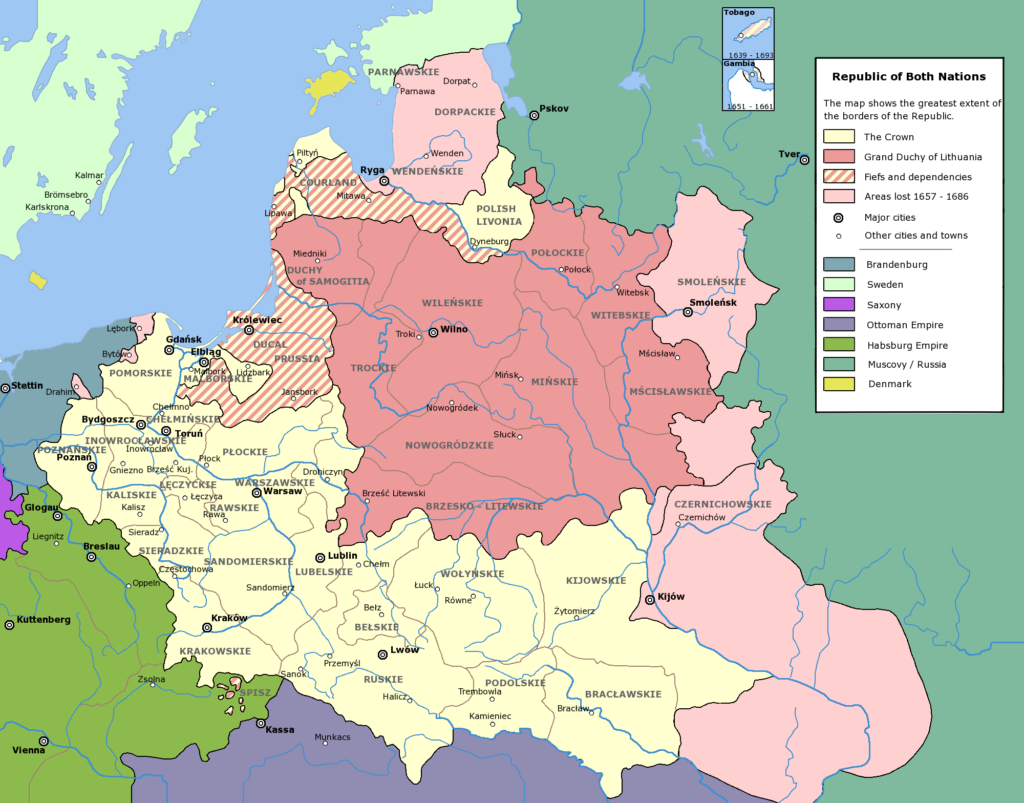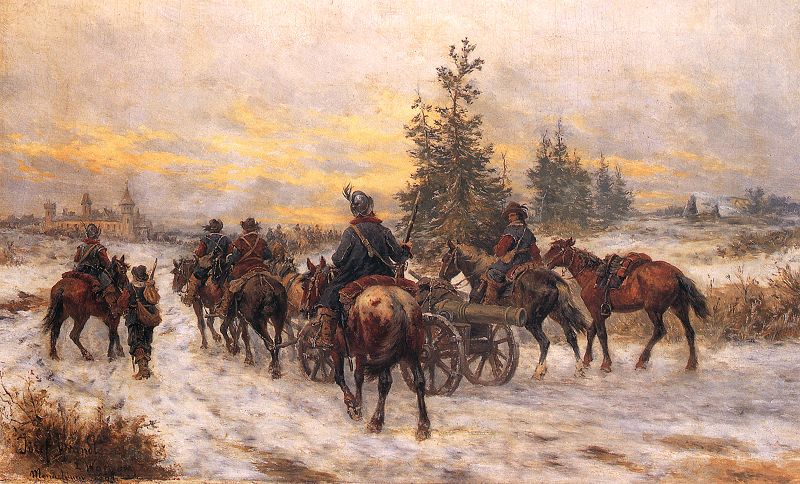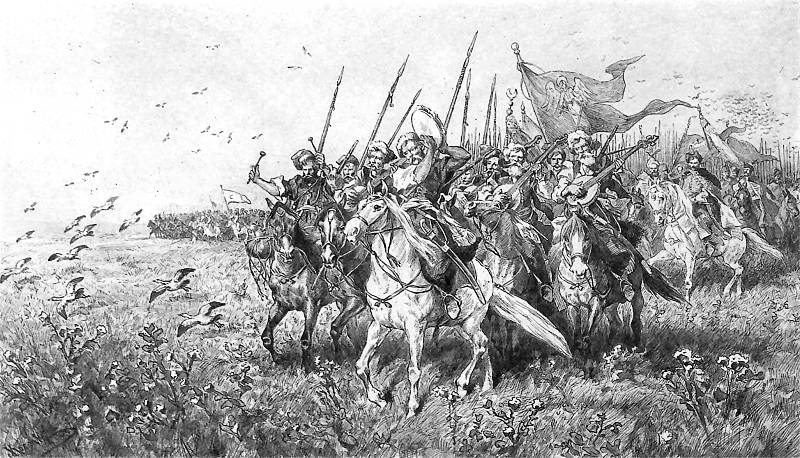
1650 AD to 1670 AD, Psalm 129: The Flood.
This site was first built in French (see www.147thgeneration.net). The English translation was mainly done using « google translation ». We have tried to correct the result of this translation to avoid interpretation errors. However, it is likely that there are unsatisfactory translations, do not hesitate to communicate them to us for correction.
(for that click on this paragraph)
Summary
This generation of the 1650s and 1660s.
According to our count, this generation is the 129th generation associated with Psalm 129. It is in this Psalm 129 that we therefore find an illustration of the facts of this generation.
Persecuted in previous generations, many German Jews had found refuge on Polish lands and in Lithuania. For many decades, this refuge had kept them safe from further persecution.
Unfortunately, since the previous generation instability has reigned with recurring Cossack revolts. Led by Bodan Chmielnicki, the Cossacks are the first to massacre or ransom Jewish communities. The reversal of fortune of the Jews of Poland was accentuated with the entry into play of the Swedish armies in 1655 which invaded the country. These armies carry out numerous massacres of Jews, imitated in this by the Polish armies.
The Jewish population of Poland and Lithuania numbered 350,000 souls in 1648. It was no more than 150,000 at the end of this period of turmoil called the « Flood » (Potop).
Whereas in previous generations the Jewish emigration to Europe fleeing the massacres was a migration from the west to the east, the « flood » produced a reverse emigration from the east to the west, mainly to Germany. The Jewish presence in eastern Europe would not disappear or even grow stronger in subsequent generations despite the many pogroms that followed.
Also during this generation, in England, after a civil war, a republic led by Cromwell was established. Cromwell was a hebraising who believed that Christ would not return until the Jews returned to Zion and converted to Christianity. The Cromwell period, although short-lived, initiated the return of the Jews to England at a key period thereof, as it would soon become one of the world’s greatest powers.
Talk
Bodan Chmielnicki
To previous generations, the Jews had been able to find refuge in Poland and Lithuania during persecutions in Europe (Germany in particular), where they had until now been relatively spared anti-Jewish attacks. Since the end of the previous generation they have undergone a complete reversal of their condition.
This reversal initiated by the revolt of the Cossacks against the Polish power and by ricochet against the Jews was denominated the « Flood » by the Jews of Poland:
- In a climate [1] of relative prosperity, the legal guarantees of the Jews of Poland, slowly built since the Middle Ages, seemed unshakeable. The coexistence of the Jewish and Christian populations was not without shadow, but it could seem idyllic compared to the situation of other European countries. The role played by the Jews in the Polish economy had allowed them to build a private life in harmony with their religious principles. […]
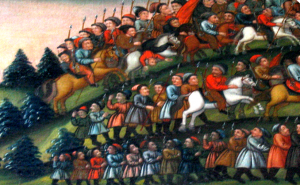
- Cossack revolts, supported by peasants, took place in 1630, 1637 and 1639. The climate deteriorated to the detriment of the Jews and the nobles. […] The martyrdom of the Jews began in May 1648 in Niemirow. In June the Cossacks, led by their captain Maxime Krzywonos, went to Tulczyno; they committed so many crimes that the « princes of Poland » decided to avenge their brothers and sent an army from Lithuania.
- On July 20, 1648, the Cossacks besieged the city of Polonne with the help of the local Orthodox peasants. Polish troops retreated and the Jewish communities of Zaslaw and Konstantynow, Sluck and Bar were destroyed. Chmielnicki then went to besiege Lwow, where the Jews redeemed their lives for gold, then Zolkiew and the cities of Podolia where the inhabitants did the same. In November 1648, it was the turn of the community of Narol, then that of Zamosc who redeemed themselves, as well as the surrounding communities. […]
- During the peace negotiations (between the new Polish king Jan II Casimir -1648 / 1668- and Bodan Chmielnicki, the leader of the Cossack revolt), the exiled Jews tried to return home. But again, in February 1649, massacres took place in Ostrog and the surrounding area with the complicity of the Christian inhabitants who were then punished by Polish troops. […]
- The arrival of Eastern Jews (the poorest forced into exile) in the small towns of Crown land was not well received. […] In fact, hostilities resumed between 1651 and 1653. After the agreement concluded in 1654 at Perejaslaw between Russians and Cossacks, the Muscovites occupied White Russia and Lithuania at the same time as the Cossacks established themselves on the Vistula. They were only driven back by the Tatars, temporarily allies of the Poles.
- The weakening of the power of the Polish state endangered the Jewish communities in Lithuania. Thus, Rabbi Moses ben Naphtali Hirsch Rivkes reported that on July 28, 1655, the community of Wilno had been almost entirely massacred by the Muscovites.
- Not only were the losses suffered by the Jewish populations of the eastern regions heavy, not only the animosity of the Christian populations towards them was considerable, but moreover this episode was to become for several centuries the object of legends.
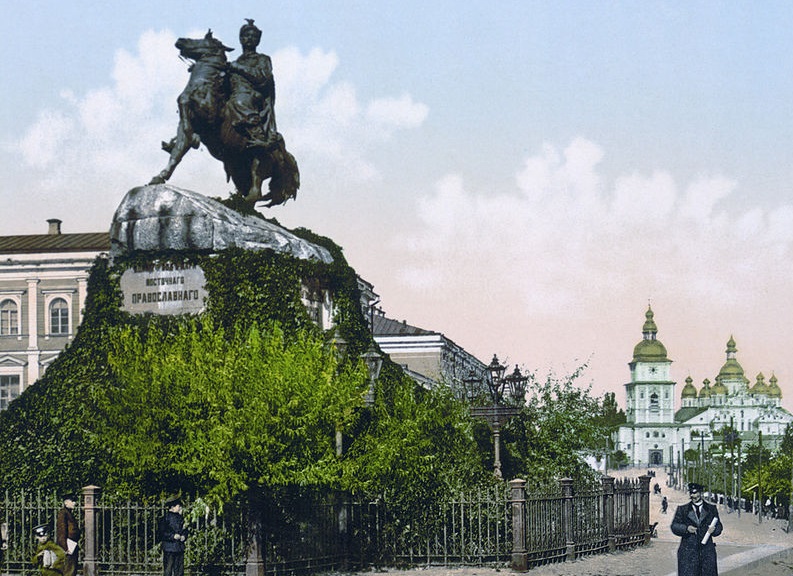
- In the 19th century, Ukrainian intellectuals composed the « Historical Legend of Ukraine » and founded the Ukrainian nation on the feeling of terror allegedly reigning in the 16th and 17th centuries by Poles and Jews.
The Swedish
In the middle of the 17th century, another danger arose: the Swedish army. During the summer of 1655, the Swedish king, Charles X Gustav, entered Wielkopolska and Lithuania; the military weakness of the Polish army and the betrayal of tycoons secured it a lightning victory.
The repeated passages of the Swedish and Polish armies had given the occasion of new suffering and new massacres of Jews.
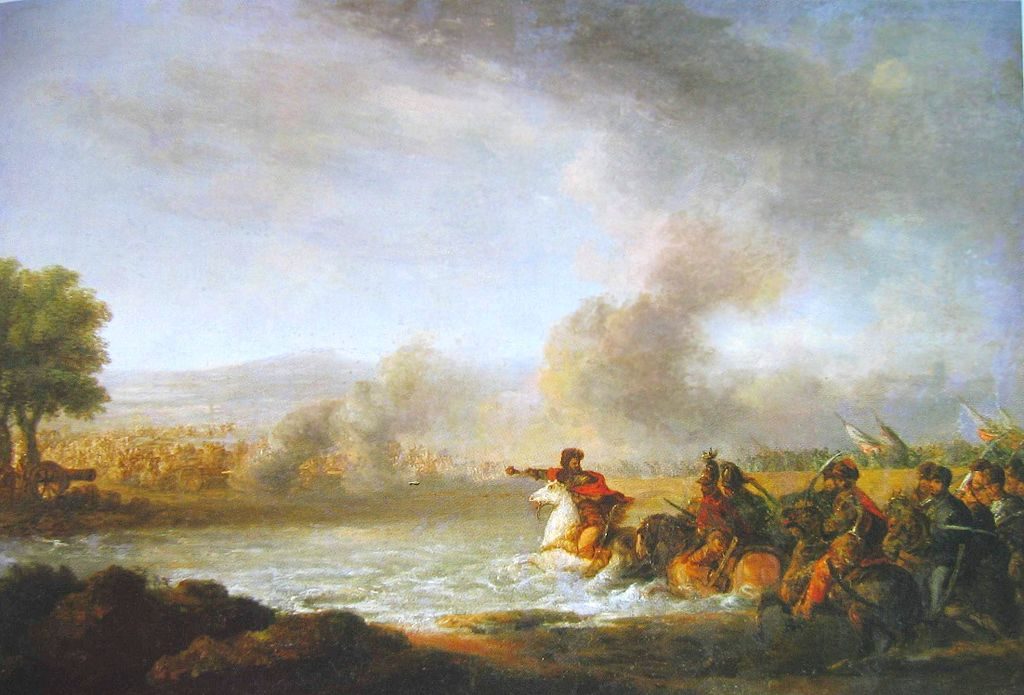
In Wielkopolska, in May 1656, the Polish general Stefan Czarnecki had the members of one hundred Jewish families killed in Kowal and, in the same month, forty others in Lopienno. That same year, the Swedes burned down the Jewish quarter of Innowroclaw, and Swedish General Wressowitz wiped out six hundred Jewish families in Kalisz. Between 1656 and 1660, the Jewish families of Gniezno, Pila and Pakosz were massacred. In Little Poland, in Chmielnik, in 1656, the Swedes exterminated a hundred Jewish families. The pillaging and occasional anti-Judaism of armies became the lot of Polish society after the Swedes lifted the siege of Jasna Gora (Czestochowa) in 1655.
Indeed, the war had unleashed anti-Judaism tendencies. In 1656, the king had to forbid the soldiers to mistreat the Jews. […] At the end of this period of turmoil called the “Deluge” (Potop), the royal policy aimed to maintain order and supply the royal treasury: as early as 1658, the king had authorized the exiled Jews to return home and resume their activities « in the interest of the Treasury ». The whole country had suffered and continued to suffer. Those responsible for these woes had to be found: the Jews and the Reformed made excellent scapegoats.
The results of the flood
The result of these years of « Flood » is particularly negative for the Jewish population of Poland which decreases sharply both directly by the effects of the massacres suffered but also by the emigration that followed:
- The expulsions [2] of Jews from Western European countries at the turn of the 15th and 16th centuries led to their migration from west to east across Germany, Bohemia and Silesia to Poland and Lithuania. The sparsely populated and huge areas, from the Baltic Sea to the Black Sea, the « republic of the two nations » that formed the Kingdom of Poland and the Grand Duchy of Lithuania together became, from the fifteenth century, the place of residence of the largest number of Jews in Europe. Their progress was rapid: in the 15th century, there were only a few thousand in the « Polish-Lithuanian Union », whereas around 1550, 160,000 lived there, then 350,000 by 1648, representing between 5% and 7% of population. In the second half of the seventeenth century, the pogroms and emigration caused by the great massacres, perpetrated by the Cossacks raised between 1648 and 1658 under the command of their hetman Bohdan Chmielnicki, and during the Russian and Swedish wars, from 1654 to 1660 , decimate them temporarily. Their number dropped to 150,000 and then increased (nearly 800,000 in 1765 in Poland / Lithuania).
While the arrival of modernity might have given hope to the Jewish people the end of the massacres, the « flood » that occurs in Poland, land so far relatively spared on this subject reminds Jews that they are still in exile and that they must still suffer the exactions of the peoples with whom they live.
It is this heavy tribute that Jews regularly pay to survive in exile that the psalmist recalls at the beginning of the psalm of this generation whose terms are particularly adapted to what the Jews of Poland experienced during the Flood, comparable to what have suffered many other generations of exile before this generation and unfortunately in many other generations after this one:

- A song of ascents. Much have they distressed me from my youth, Israel will say now.
- Much have they distressed me from my youth, but also they have not prevailed against me.
- On my back, the plowmen plowed; they lengthened their furrow.
Whereas in previous generations Jewish emigration to Europe fleeing the massacres was a migration from west to east, the « Flood » produced an emigration from east to west. The Jewish presence in Eastern Europe does not disappear or even become stronger for future generations despite the many pogroms that will follow. This reverse movement allows Jews to settle (or resettle) in the Western European countries that will dominate future generations. This is the case of Germany, which had distinguished itself in past generations in the massacre of its Jews.
This is also the case in Amsterdam where, for example, around 1,700 Ashkenazim found refuge in miserable conditions in 1657.
Cromwell
In England, the attempts of James I (1566-1625), then those of his son Charles I (1600-1649), to install an absolute monarchy meet the strong resistance of the English parliament, to provoke a civil war that will be fatal to the monarchy.
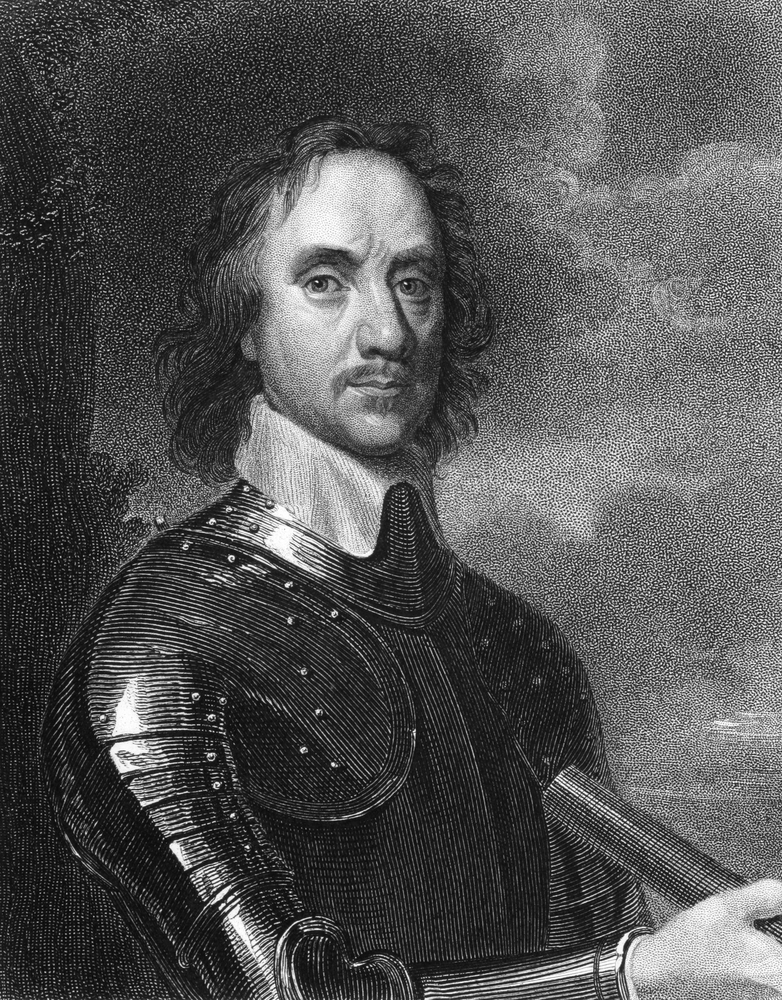
Charles I was beheaded in 1649 giving way to a republic headed by Cromwell who acts like a king while denying the title. Charles II, who had failed to succeed his father in 1649, finally succeeded in Cromwell’s death in 1658. This period initiated a new Christian messianic movement in which the Jews had their place:
- Anguish [3] about the catastrophe and the hope of redemption went hand in hand: France and England were bloodied by civil wars while in Eastern Europe, the Jews of Poland and Ukraine were massacred thousands by the marauding Cossacks of Khmelnytskyi hetman. In 1649, Charles I was decapitated and Olivier Cromwell took power as Lord Protector. This Millenarian soldier was convinced that these Puritans, like their New England brothers, were the chosen people:
- « Verily you are called by God as Judah was, to reign with Him and in Him, » he said. You are at the dawn of promises and prophecies. Cromwell was a Hebrewite who believed that Christ would return only when the Jews returned to Zion and converted to Christianity. Objectively, the Puritans were the first Christian Zionists. Jeanne and Enebezer Cartwright even suggested that the Royal Navy « carry the sons and daughters of Israel in its ships to the land that was promised to their fathers as an eternal inheritance. »
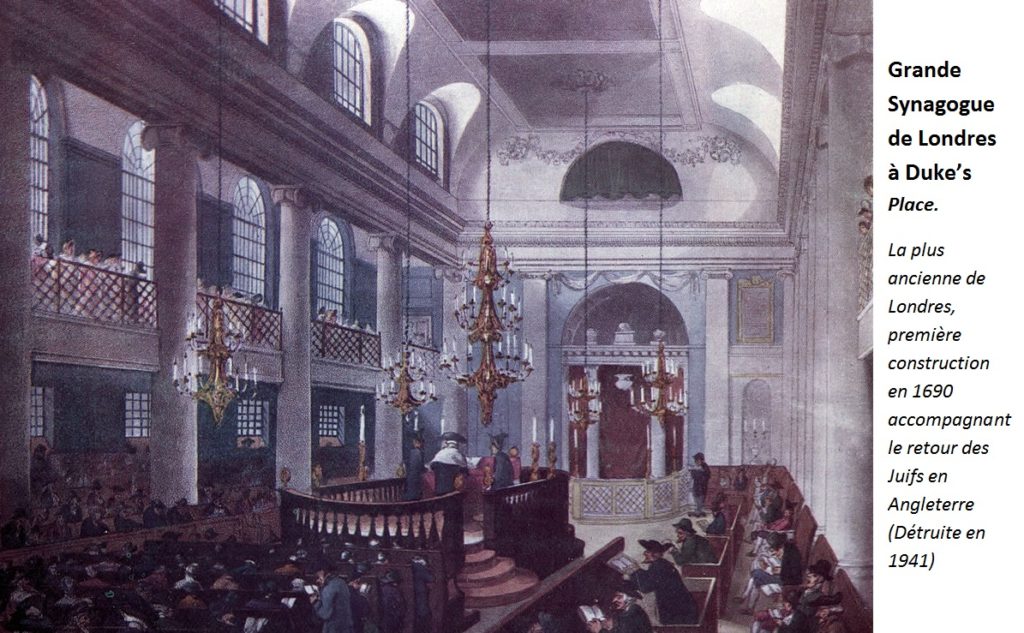
The Cromwell period, though ephemeral, begins the return of the Jews in England to a key period of it, since it will soon become one of the greatest powers in the world.
Thus the « flood » that is a blow to the Jewish community in Poland, the largest in Europe before 1650, does not bring a fatal blow to European Judaism which on the contrary will strengthen its establishment and expansion in European countries from West. This means an opening to the path of modernity, including ideas, since these countries are now practicing a much more tolerant policy with the Jews. This will ultimately result in Jews finally being considered as full citizens. This is already practically the case in Amsterdam in 1657 (for Jewish merchants abroad who are considered nationals of the Republic of the United Provinces enjoying the same rights as Christian merchants).
Thus despite the « flood », the psalmist can conclude the psalm on an optimistic note:

- The Lord is righteous; He will cut the ropes of the wicked.
- May all those who hate Zion be ashamed and retreat.
- May they be like the grass of the roofs, which, before it is plucked, withers.
- Of which the reaper did not fill his hand, nor the gatherer his arm.
- And the passers-by did not say, « May the blessing of the Lord be to you; we have blessed you in the name of the Lord. »

[1] Daniel Tollet: « To be Jewish in Poland, thousand years of history from the Middle Ages to 1939 ». (French: « Être Juif en Pologne, mille ans d’histoire du Moyen-Âge à 1939 ». (p. 84 à 92) )
[2] (Antoine Germa Collective / Benjamin Lellouch / Evelyne Patlagean): « The Jews in History ». Chapter of Marie Elizabeth Ducreux: « Jews in the societies of Central and Eastern Europe ». (French: « Les Juifs dans l’histoire ». Chapitre de Marie Elizabeth Ducreux: « Les Juifs dans les sociétés d’Europe Centrale et Orientale ». (p. 333/334) ).
[3] Simon Sebag Montefiore: « Jerusalem: Biography ». Chapter « Mystics and Messiahs ». (French: « Jérusalem : Biographie ». Chapitre « Mystiques et messies ». (p. 363) )

